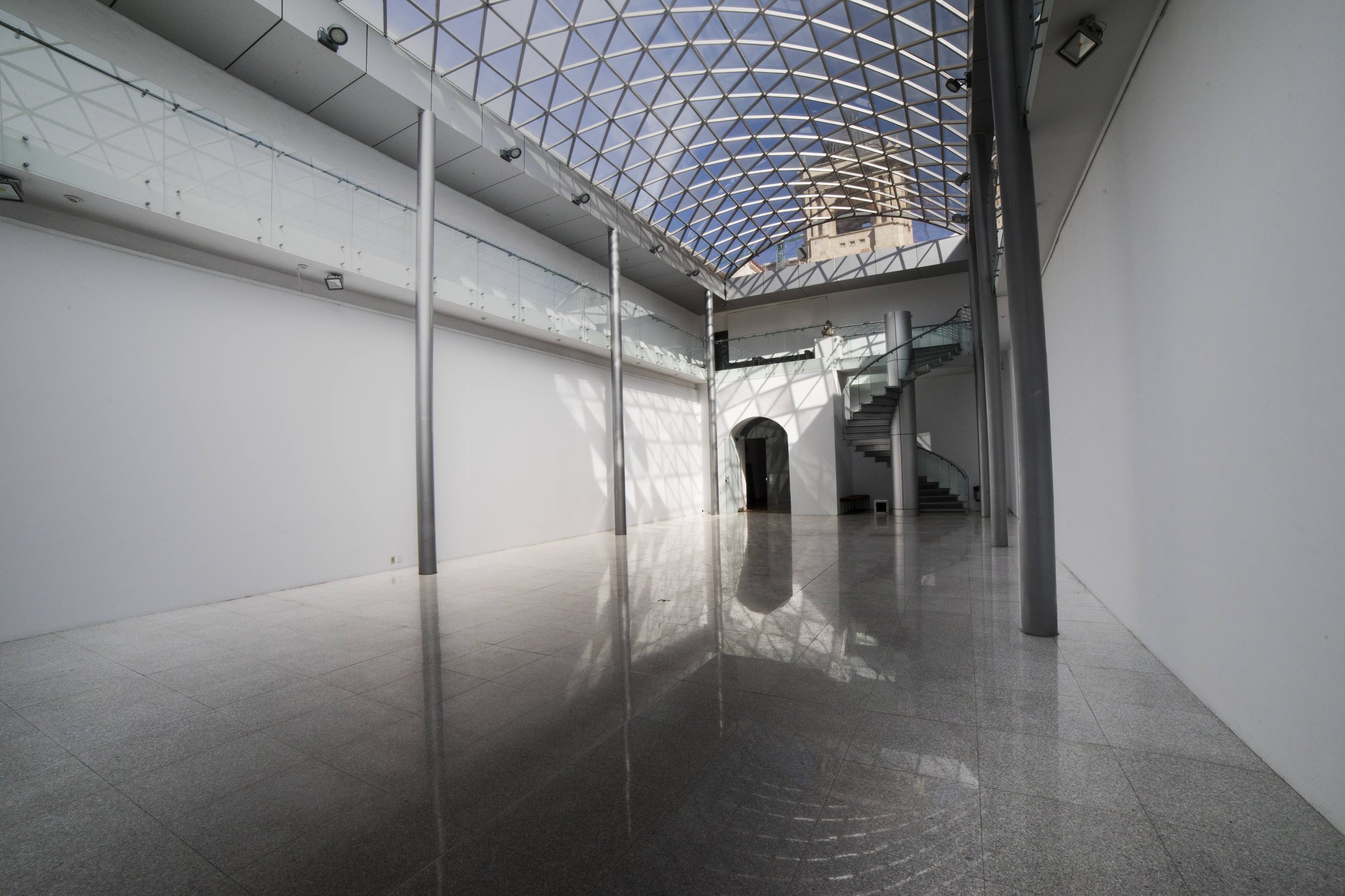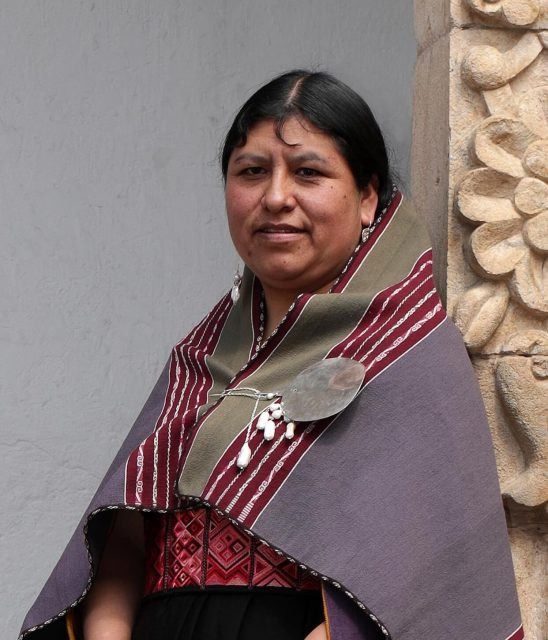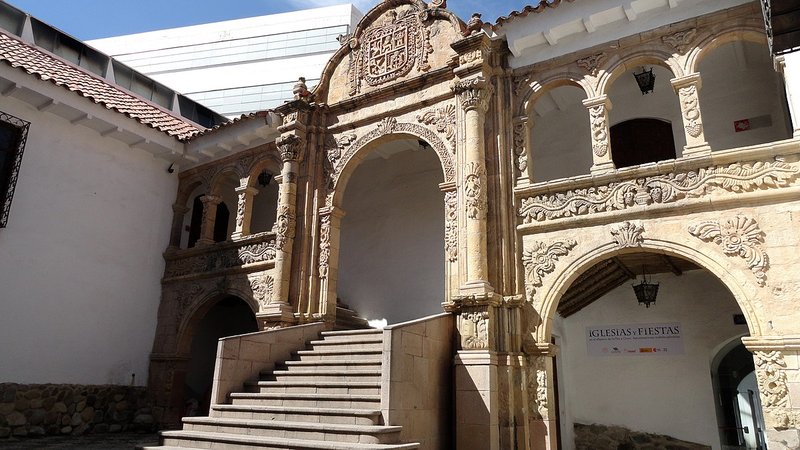La Paz: International Museum Best Cases in Danger

CIMAM’s Museum Watch Committee would like to draw attention to governance issues becoming evident at the Fundación Cultural del Banco Central de Bolivia (FCBCB). Founded in 1995 the FCBCB has oversight of nine of the most important cultural institutions in Bolivia: the Casa Nacional de la Moneda in Potosí; the Casa de la Libertad, the Archivo y Biblioteca Nacional de Bolivia, and the Centro Plurinacional de las Culturas y las Artes “La Sombrerería”, all in Sucre; the Centro de la Cultura Plurinacional, in Santa Cruz de la Sierra; and the Centro de la Revolución Cultural, the Museo Fernando Montes, Casa Museo Marina Núñez del Prado, the Museo Nacional de Etnografía y Folklore (MUSEF), and the Museo Nacional de Arte (MNA), all in La Paz. After a deep political crisis that resulted in a temporary government taking office in November 2019, the FCBCB’s Board was entirely replaced in March 2020 and since April has been led by its current President Guillermo Mariaca. CIMAM wrote to the President on June 23, 2020 to express concern on events emerging on June 23, 2020 and this letter as yet remains unanswered.

An article in the newspaper La Razón dated June 16, 2020 reported that Max Jorge Hinderer Cruz, Director of the MNA since March 2019, and Elvira Espejo Ayca, Director of the MUSEF since 2013, have been requested on June 1, 2020 to “make available their positions”. CIMAM confirmed the contents of this article directly with the individuals involved. In the above mentioned article the President of the FCBCB indicates that the reported request that the museum directors resign “es natural al existir un cambio en la presidencia” (“is natural before a change of President”). Yet the only two museum directors – of the total of nine institutions – asked to resign are museum professionals highly respected amongst the wider international contemporary museum community. They have demonstrated the recognised best practices of modern and contemporary art museums worldwide through their programmes critically reframing history and supporting social inclusion and community outreach.

The MNA and MUSEF are two important museums in Latin America and their work resonates within the wider international museum community. This is due to Espejo and Hinderer`s impressive work that locates them at the forefront of the international development of best practice in the fields of museum education and social inclusion programmes that benefit the citizens of La Paz. While the MUSEF has received the largest amount of visitors to a cultural institution in Bolivia in 2019; during the same year MNA’s monthly attendance increased by 14% from the previous year (despite a three month closure) and tours were offered in Aymara for the first time, recognizing an indigenous population in La Paz (recognised as 62% of the overall society in the 2001 census), that had until this point had never been directly addressed as a possible audience for public museum. The MNA also doubled interactions with its online platforms.

Both museums have also demonstrated excellence in their critical reframing of history and acknowledgement of the richness of the diversity of Bolivia’s cultural practices and traditions. Research undertaken at the MUSEF on Bolivian material culture from the different historical periods, Archeological [Pre-Hispanic], Colonial, and Ethnographic [Contemporary]) underpinned an extensive programme of exhibitions and published research that have contributed widely to new understandings of Bolivia’s unique cultural heritage and current artistic practices. The importance of this work is marked by the honoring of Espejo this year with the Goethe Medal 2020, the highest international distinction in culture awarded by the Federal Republic of Germany. The MNA’s exhibition and research programmes have received international recognition for the distinction of projects including the PED (Program for Decolonial Studies in Art); Estudio No 1,the experimental-educational space for performative, digital and ephemeral art practices for artists aged between 18 and 30; or the Museum’s 2020 exhibition of it’s colonial collection entitled “Dios y la Máquina: singularidad y serialidad en la pintura colonial andina”, that, based on extensive research work, sheds new light on the 16-18th century colonial collections of the museum, challenging dominant art historical narratives.
The need for museums to revisit our histories and reflect the contemporary context is recognised worldwide as critical to ensuring the relevance of museums of this and future generations. Museums globally are challenging themselves to become institutions that reflect in their programmes diverse histories and cultural traditions, whilst supporting social inclusion and openness in the societies they serve. MUSEF and MNA are recognised internationally as being amongst the museums that are leading the way in this important endeavour.
CIMAM is deeply concerned about the future of MNA and MUSEF following the forced resignation of two Directors recognised internationally for their visionary leadership and the actions of the Board in demanding these resignations without appropriate due process to assess the performance of these Directors against the stated mission and objectives of each institution. Decisions such as forced resignation of two respected museum Directors requires a transparent and open process and this has not been in evidence in this case.
CIMAM’s Museum Watch Committee therefore urgently requests that the Board of the FCBCB follows appropriate governance procedures for a body that holds responsibility as the custodians of two important cultural institutions. It is the role of the Board to make decisions that are informed by the cultural not political context. CIMAM Museum Watch Committee asks that the Board of the FCBCB withdraw the request for the resignations of Espejo and Hinderer and that decisions regarding the leadership of these important institutions are informed by open and transparent discussion about the vision and objectives of the museums.
→ CIMAM shares the petition in Support of Elvira Espejo Ayca and Max Jorge Hinderer Cruz initiated by Pablo Lafuente and Miguel A. López.
Sign here: http://chng.it/7y5FJJW7Sz
29 June 2020
The Museum Watch Committee of the CIMAM Board: Bart De Baere (Chair), Calin Dan, Sarah Glennie, Malgorzata Ludwisiak, Victoria Noorthoorn, Eugene Tan.
CIMAM – International Committee for Museums and Collections of Modern Art – is an Affiliated Organisation of ICOM – International Council of Museums.